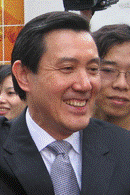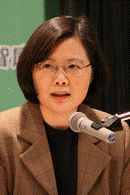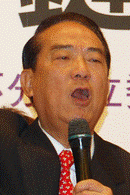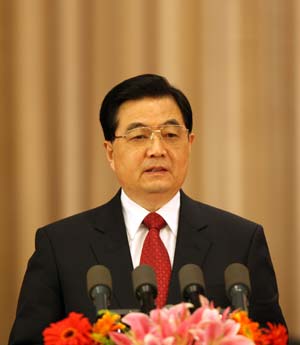Taiwan leadership election
Time: January 14, 2012
Latest News:
• Taiwan reshuffles administrative body
• Ma re-elected, mainland reiterates 1992 Consensus
• Ma's re-election opens new chances for cross-Strait relations
• Ma wins Taiwan's leadership election
• Polls open for Taiwan leadership, 'legislative' election
• Taiwan election candidates stage campaign finale
• '1992 Consensus' beneficial to Taiwan's stability
• Taiwan election candidates canvass in final hours
• Candidates for Taiwan's leadership election rally support
• Taiwan leader election campaign starts on Saturday
Candidates:
 |
 |
 | |
|
Candidate |
Ma Ying-jeou |
Tsai Ing-wen |
James Soon |
|
Party |
Kuomintang |
Democratic Progressive |
People First |
|
Running mate |
Wu Den-yih |
Su Jia-chyuan |
Lin Ruey-shiung |
• Ma Ying-jeou: Chairman of the Kuomintang Party

Ma Ying-jeou was born in Kowloon, Hong Kong on 13 July 1950. He earned his bachelor’s degree from National Taiwan University in 1972. He pursued further studies in the United States, first earning a master’s degree from New York University Law School in 1976 and then a doctor's degree from Harvard Law School in 1981. In 1981, Ma returned to Taiwan and started working for the then Kuomintang chairman Chiang Ching-kuo.
Ma is married to Christine Chow. The couple has two daughters.
• Tsai Ing-wen: Chairperson of the Democratic Progressive Party

Tsai Ing-wen was born on August 31, 1956 in Pingtung County, Taiwan. After graduating from the College of Law at National Taiwan University in 1978, she obtained a master's degree in Legal Science from Cornell University Law School in 1980 and then a doctor's degree from the London School of Economics in 1984. In 1993, she was appointed to a series of political positions by Kuomintang.
Tsai was born into a wealthy family. She has never been married.
• James Soong: Chairman of the People First Party

Soong was born on March 16, 1942 in Xiangtan, Hunan Province, also the home county of Mao Zedong. It is said his grandfather taught at the same school Mao attended as a student. Soong earned his bachelor's degree in diplomacy from National Chengchi University in 1964. He received a master's degree in political science from the University of California, Berkeley in 1967, a master's degree in library science from the Catholic University of America in 1971, and a doctor's degree in political science from Georgetown University in 1974. At Berkeley, Soong met his future wife Viola Chen. They later had a son and a daughter.
After he finished his doctoral studies, Soong served as the English secretary of senior Kuomintang leader Chiang Ching-kuo.
In May 5, 2005, Soong took a nine-day trip to the Chinese mainland, two days after Lien Chan, then chairman of Kuomintang, wrapped up his historic "journey of peace."
Hu Jintao's Proposals for Peaceful Development of Cross-Straits Relationship in 2008
 1. Firm adherence to the "one country" principle;
1. Firm adherence to the "one country" principle;
2. Strengthening commercial ties, including negotiating an economic cooperation agreement;
3. Stressing common cultural links between the two sides;
4. Promoting personnel exchanges;
5. Allowing Taiwan's "reasonable" participation in global organizations;
6. Negotiating a peace agreement. >>
The Taiwan Question and Reunification of China
• Origin of the Taiwan Question

During the war of resistance against Japanese aggression, the Communist Party of China and other patriotic groups pressed Kuomintang into a national united front to fight Japanese aggression. After victory of the war, the Kuomintang clique headed by Chiang Kaishek tore up the 10 October 1945 Agreement and launched an all-out civil war. When the People's Republic of China was proclaimed on 1 October, 1949, and the government of the new People's Republic became the sole legal government of China, a group of Kuomintang officials took refuge in Taiwan and, with the support of the then U.S. administration, created the division between the two sides of the Straits. >>
• The Chinese Government's Basic Position Regarding Settlement of the Taiwan Question

To settle the Taiwan question and achieve national reunification -- this is a sacrosanct mission of the entire Chinese people. The Chinese government has persistently worked towards this end since the founding of the People's Republic. Its basic position on this question is: peaceful reunification; one country, two systems. >>
• Several Questions Involving Taiwan in International Relations

There is only one China in the world, of which Taiwan is an inalienable part. The government of the People's Republic of China has been recognized by the United Nations and throughout the world as the sole legal government representing the entire Chinese people. In the interest of safeguarding state sovereignty and realizing national reunification, the Chinese government has always stood firm on the principle of one China and ensured the interests of Taiwan compatriots in international relations involving Taiwan. >>







